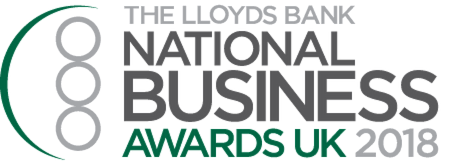UK&I – United Kingdom & Ireland
News about Experian United Kingdom and Ireland:

There’s no escaping the fact that data is universal; enabling our choices, fuelling our economy, informing decisions and shaping our ideas. It’s influence, driven and shaped by the digitalisation of our culture, is only set to expand as we enter the next decade. As the world becomes ever more connected, the sheer volume of available data will continue to grow at a substantial rate. So too will the range and variety of that data. With that comes huge opportunity for organisations to use data-driven solutions to not only deliver better outcomes for their customers, but take on some of the biggest challenges in society. At Experian, we believe data has the power to change the world for the better, and remain committed to creating new ways to drive innovation for the benefit of everyone. That’s why we’re proud to sponsor the very first ‘Data Excellence Award’ at the National Business Awards in November, championing the best examples of those working at the forefront of data and analytics. The ‘Experian Data Excellence Award 2018’ is designed to recognise organisations that are unlocking the power of data to create opportunities for people, businesses and society. If you understand that the value in data goes far beyond regulatory compliance, this is the award for you. It’s hugely exciting to be part of this year’s awards and we are looking forward to seeing some high-quality entries showcasing data excellence. Interested? Then visit the National Business Awards website for more information.

As the owner of one of those increasingly popular voice-controlled assistants, I get a weekly email from the supplier suggesting new things to ask it to do or help with. Rather conveniently, this week’s update arrived this morning and includes the suggestion: “[Hello], can you do maths?” I use the word ‘conveniently’ because among the various tasks on my to-do list today is ‘write a short blog about numeracy’. So now I have an introduction. Like literacy, numeracy – understanding and being able to apply numbers – is a vital life skill. They are both key foundations of our education from the earliest of ages and go on to support opportunity and achievement throughout our schooling, into the world of work and beyond. Low levels of numeracy in adult life can be a major obstacle to success. Most employers require at least basic maths skills. And if you struggle with numbers, making successful financial decisions about the money that going to work generates will be very challenging. But this is the reality for many adults today. In the UK, almost half of us possess the maths skills expected of an 11 year old. This is according to National Numeracy, a charity that champions the importance of good numeracy and provides tools to help people improve. So when National Numeracy asked Experian to support the UK’s first National Numeracy Day on 16 May we were delighted to say yes. I’m certainly looking forward to working alongside a number of other big brands as well as numeracy ambassadors Rachel Riley and Martin Lewis. It’s a great fit for Experian, a company with a long track record of supporting initiatives designed to help people make successful decisions, particularly around personal finances. Our learning resource Values, Money & Me is already used in primary-school classrooms around the country to help cement good financial habits from an early age. Similarly, millions of adults track the health of their credit with the help of a free Experian account, and use the built-in eligibility features to secure better deals on financial products. Like others, we firmly believe that maths skills and financial success are closely linked, so we’re delighted to be helping support and promote National Numeracy Day. We’ll be encouraging as many people as possible to tackle the National Numeracy challenge and, where necessary, to take follow-up steps to brush up on their maths skills and, as a result we hope, improve their financial futures. Written by: James Jones, Head of Consumer Affairs, UK&I

Identity fraud is at an all-time high, and it can have devastating consequences on a person’s life. Victims of identity fraud may have to file for bankruptcy or deal with debt, which can sometimes cause personal relationships to suffer. Elderly people in particular are at the greatest risk of fraud out of any age group, as they tend to more trusting of phone calls, house calls and email scams. It’s my job at Experian to arm them with the tools they need to prevent identity fraud. The number one challenge in helping prevent identity fraud is lack of awareness. People simply don’t know all the risks, so education is a paramount priority. At Experian, we conducted research on the best way to educate different age groups, and found that it varied widely. While younger people are best reached online, older people are more responsive to face-to-face activities, which is part of the reason they are more susceptible to doorstep scams. To help educate elderly people, we found we needed to go out into the community and literally put useful information into people’s hands. As part of these efforts, my team at Experian first worked with the Outreach Solutions organization to help older people in Nottinghamshire, England, understand the dangers of fraud. The pilot campaign, “Tackling Fraud,” reached 15,000 U.K. residents over age 55, teaching them how to tackle the threat of fraud. We armed these individuals with expert advice on how to spot suspicious activity and stop it from happening to them or the people they care about. Given the success and great reception we had in Nottinghamshire, it was clear that this movement could continue growing. According to Experian research, Glasgow is one of the areas with the highest number of identity fraud cases in Scotland. We’d been testing a new television advertisement in Glasgow – marking the first time that identity fraud has ever been advertised on TV in the U.K. – so I made the case to run the next iteration of our Tackling Fraud campaign there, too. In partnership with the Glasgow Council for the Voluntary Sector, we worked with a range of individuals and community groups to provide fraud prevention training to more than 30,000 elderly people in the city.\ We’re dedicated to helping the elderly with our Tackling Fraud campaign, putting people in control of their lives by giving them the information they need to help them protect themselves. I hope that one day we can take this project throughout the U.K. Written by: Phil Rance, Director of Product Identity, Experian Consumer Services

Promoting a better understanding about how the credit economy works and improving financial awareness, so that people can take control of their financial situation with positive, proactive decisions, is absolutely fundamental to our business strategy. This is encapsulated through our financial education programmes. In partnership with Young Enterprise, we have created 28 Centres of Excellence for schools to support children’s financial education. And through Experian’s Values, Money & Me, we have created the UK’s first free online teaching resource to help children develop their financial knowledge and abilities. Credit Awareness Week is, then, a natural place for us to continue that focus. And to take that conversation more widely, to our industry partners, for us all to consider how we might find better ways of working, and drive better outcomes for our customers. There’s no doubt that we are living through a period of significant financial uncertainty. At times like this it is important that consumers are aware of all the options available to them from a financial perspective. And we believe your credit score is one of the first things you should look at. It’s perhaps surprising then that our annual Credit Awareness Week consumer survey found that public awareness of credit and how it can be used to help with day to day challenges still remains relatively low, despite some signs of improvement – potentially driven by the widespread availability of free score services. The percentage of people who said they know their current credit score went up from 22% to 26%, while 47% have ever checked their credit report, up from 45% last year. However, there is still much misunderstanding coming through. 39% of those surveyed wrongly believe their own credit score can be affected by a previous resident of their address having a poor credit score, while 14% think, incorrectly, that checking their own credit report and score has an impact on their credit rating. More than a quarter (26%) are also wrong to believe having a high income can affect their score, while 14% are incorrect to think checking their own score has an impact. The number of people who believe that the system needs to provide clearer explanation about how the decision was made when credit is refused has also increased. What the results of our poll tell me is that more needs to be done in promoting a better understanding about all the options available, like the existence of eligibility and comparison services which are designed to help empower people shop around for better deals and, where credit is concerned, avoid damaging their score while they do so. So there is work to do in building a better understanding about how credit works, which is something we are committed to and that’s why we are supporting this campaign. To help, Experian and Credit Strategy have launched an improved ‘credit refusal pathfinder’ [add hyperlink] tool, to help guide people who apply for credit and get turned down. I’d encourage everyone, even those of us who think we know this business inside out, to take a look at the tool. And, in the spirit of building greater trust and transparency with our customers, let’s take this opportunity to have a think about what we in the industry can do to make things clearer for people. Helping them understand how lending decisions are made and empowering them to take control of their financial situation and make better, sustainable choices through affordable access to finance.

Having a diverse workforce is vital to help us innovate and deliver on the needs of our increasingly diverse clients and consumers. Over the years, we've made some great progress, but there's so much more we can do and it's going to take the collective effort of all of us to continue to move the needle. That's why we're gearing up to celebrate International Women's Day (IWD). It's a day celebrated in many countries around the world to recognize the achievements of women and drive equality among men and women. At Experian, IWD activities are extending throughout the month of March. Have a look at what's going on around the world as Experian celebrates this important day: Asia Pacific The Asia Pacific region is hosting a range of activities across our offices in March, which will include round-table and speaker events as well as an opportunity to network and pledge their support for IWD. EMEA and UK&I EMEA and UK&I are joining together for IWD to support and celebrate diversity and inclusion. The week started with a video of employees from both regions reflecting on what diverse teams bring to our business. Employees will also be invited to a variety of events to engage and network with inspirational women and hear stories from our leaders on what diversity means to them personally. Latin America Throughout the month of March, Latin America has been running a campaign to share stories of achievements in their region and raise awareness about breast cancer prevention and other diseases more common in women. On IWD, there will be a panel of women leaders who will address issues such as the social inclusion of women in the region, women's participation in the labor market, Experian's commitment to female leadership and the importance of a work/life In Brazil, IWD is kicking off with a presentation by members of the United Nations to present their 50-50 Gender Equality program (which aims to eliminate gender inequalities by 2030) and how they are working with companies around the world to achieve this vision. Employees will have an opportunity to hear from leaders in our business about diversity and inclusion plans for the region, and listen to a panel of external speakers discuss diversity challenges and career development. North America Our employees in North America will be kicking off the week with celebrations across their ITS’ 13 offices in the region. Each office will have daily activities throughout the week, and all employees – including virtual and those based in smaller offices – will be invited to attend webinars focused on Diversity and Inclusion topics. On IWD, there will be panel discussions with senior leaders who will speak on various career development topics. To close out the week, there will be a special Book Club discussion on March 9. We will continue to update this blog post all week with pictures and other ways we’re celebrating IWD. Bookmark this page and come back.

In the United Kingdom, the Financial Inclusion Commission has previously expressed concern that 31 percent of the adult population has experienced one or more signs of financial distress, such as regularly accruing overdraft charges and using credit to pay for essentials each month. While the Bank of England has warned U.K. households about the risk and effects of their alarming, yet growing, dependence on loans and credit cards, knowing how to manage debt successfully is a vital skill many lack. While most individuals do comfortably manage their debt repayments, many unexpectedly face tough times, especially following disruptive life events that complicate financial management. Since joining Experian from university in 1992, I have been involved in a number of developments and initiatives to help people better manage their money, particularly during difficult times. Years ago, I oversaw the launch of our first telephone helpdesk for the UK public, and today I still answer questions online and occasionally on the radio from individuals worried about their credit scores and loan payments. After years of one-on-one interactions, my team and I have discovered that the key to growing our capacity to serve the community is through partnerships. To provide more effective support for U.K. consumers, Experian began to partner with debt advice charities that give free and professional guidance to people, including about credit score issues. Experian’s role is to make sure debt advisors understand the nuances of credit reporting and credit scoring when talking to and helping their clients. We provide this support in a number of ways. In the last year alone, we have trained more than 600 debt advisors through workshops and seminars, and provided free credit reports to more than 60,000 individuals through debt counselling outlets. Additionally, we have used our insight and data consultancy services to help a number of charities better understand, engage with and support their clients, for example, by identifying their clients’ preferred communications channels. This has included the Money Advice Trust, which runs National Debtline, and StepChange Debt Charity, a leading UK debt counselling provider. Our partnerships within the debt advice sector have not only enabled us to support, educate and empower more consumers to reach their financial goals, but also helped Experian better understand consumers’ greatest fears and misconceptions when it comes to finances. I have enjoyed representing Experian for the past 25 years including working with a number of great organizations and really passionate individuals – so much so that I jumped at the opportunity to join the board of a new debt advice charity, The Debt Counsellors Charitable Trust, a couple of years ago which was very much focused on helping the most vulnerable people. The relationships I’ve developed with these intelligent, ambitious debt advice advisors and charities has really inspired and humbled me. They work tirelessly every day to ensure households in the U.K. can reach their financial milestones – including, importantly, when things go wrong – and I am grateful to be a part of this important network. James Jones: Head of Consumer Affairs, U.K.

It’s my great pleasure to announce that, for the second successive year, Experian has been certified as a ‘Top Employer’ by the Top Employers Institute. The annual research programme recognises leading employers around the world. Awarding only those that provide the kind of conditions where their employees can develop, both professionally and personally, nurturing and developing talent throughout all levels of the organisation. Being recognised as a Top Employer two years in a row is a significant achievement, but I am also aware that the journey doesn’t end here. This isn’t the time to take our foot off the pedal. We will continue to develop our working culture, listening to feedback from our team and pushing the boundaries to create the best possible working environment for our people. After our initial recognition in 2017, we set ourselves a challenge to not only retain our Top Employer status this year, but also to improve our overall performance against the institute’s tough certification criteria. It’s down to the ongoing dedication of our UK team that we have managed to achieve this challenging objective. Experian is all about its people. We are committed to providing a working environment that people love, giving them access to the best training, the greatest opportunities and the latest tools – everything they need to progress their career. This award demonstrates that we are clearly on the right path, but we won’t stop here. We’re always looking for new ways to do things and to improve as a business. So by listening to our people and actively encouraging new ideas, together we will continue developing Experian as an outstanding place to work.

Today’s world runs on data. We all leave footprints in the digital world, from the profiles we build of ourselves online, to the countless internet searches we conduct each week, to the information we share via a myriad of apps downloaded on a multitude of devices. The proliferation of new technologies has meant that those footprints – the information and data generated through our digital actions – are seen, recorded and analysed, not only by the service providers but often by their partners as well. Data is everywhere. The quality, management and understanding of that data is crucial for both businesses and society. It allows businesses to develop better products and services, and it is also the key to building better relationships with consumers. To build those relationships, we (the business community) must recognise that the information belongs first and foremost to the consumer. It is their data. We are its custodians, and we must act accordingly, to make sure that people understand and are comfortable with our sight and use of that data. We must be able to build trust, while meeting all the associated obligations that come with the responsibility of managing huge volumes of personal information in a complex digital world – prioritising security and transferring that data both safely and efficiently. At Experian we process over 1.5 billion records a year. We believe data can empower, and we want to help people understand the positive role that it can play in their lives and how it can help improve their financial circumstances. To do that, we must understand how good that understanding is today. How far have consumers come on the ‘data journey’? Do they appreciate the control they have, their rights, and access to their data? Do they trust the caretakers of that data to do the right things with it, to protect it, to manage it and to look after on their behalf? Getting this right is more than just important. It is the responsibility of companies like ours to help people understand what information exists about them, where it goes, what it means, and how they can use it better. In May next year, the arrival of the EU’s General Data Protection Regulation (GDPR) will see a new enforced focus on consumer rights in this space. We will also see the advent of new data driven initiatives such as Open Banking, designed to give consumers more freedom to choose the products and services that work for them. These initiatives make it imperative for the business community to find better ways to communicate with consumers about why we have their data, what we do with it, and how they can use it and control it in the way they’re most comfortable with. We have commissioned research into people’s attitudes to data to help us, and you, understand how people in Britain feel about the way their data is kept and used today. We’ve done it because we want to have this conversation both with the business community and with people themselves. It’s their data, and we want to make sure they’re empowered, comfortable and confident in where it is and how it is being used. True innovation can only be fostered in an environment of understanding and trust. We hope this is the first step in building that together. Read our whitepaper on the UK’s attitudes towards data here.

Positive female role models are important if we are to transform some of the preconceptions that the public, and more importantly young girls, have about a career in STEM. To achieve this, it’s important that the effort starts at an early age to breakdown the stereotypes and outdated views that certain professions are gender-specific. At Experian, we are committed to empowering more women to become data scientists. That’s why we were delighted to sponsor the Women in Data conference in November, to help inspire, educate and support women into the data industry. Further to that, we are absolutely thrilled to find out that Experian's data scientist Berenice Pila-Díez was announced as one of the 20 women in data and technology, a project showcasing women forging careers in the traditionally male-dominated fields of data and technology. We hope that Berenice’s story, along with the others, will act as inspiration for the next generation of girls (and boys) to follow in their footsteps and establish a successful career in STEM.